|
The holidays are almost upon us, and many will be celebrating either alone or with immediate family. But that’s no reason to curb the festivities. In fact, this year, more than ever, it is important to embrace our traditions and be thankful for family and friends that are still with us. In addition to sparkling wines, which I will be talking about in the next week or so, here are a few light still wine suggestions for your holiday table. These versatile and food-friendly wines will pair nicely with poultry, fish, vegetarian cuisine and latkes! Cavit Pinot Noir IGT 2018 The grapes for this 100% Pinot Noir come from the vineyards of Provincia di Pavia in the Lombardy region of Italy. After fermentation, the wine rests on its lees in large oak barrels until release. Aromas of floral, cherry and cranberry segue onto the palate with dark cherry notes, red berries and a hint of spice. This is a well-structured wine with silky tannins and a long finish. Serve as an aperitif or with your favorite meal! Alcohol: 12% SRP: $9.99 Nik Weis St. Urbans-Hof Wiltinger Kabinett Riesling 2018 Wiltinger is a village located in the Saar valley of Germany. The vineyard is on a site called Schlangengraben. It is noted for its reddish slate soil, a color that is derived from the iron content that adds minerality and spice to the wines. The vineyard was planted in 1905 and is one of the oldest in the entire Mosel region. These old vines have deep roots and produce small berries that create intense, lively, aromatic and complex wines. This wine has a VDP Ortswein classification, meaning that it comes from a village’s best vineyards. Intoxicating aromas of floral, stone fruit, spice and a touch of smokiness set the stage for this succulent wine. The palate offers peach, apricot, pear, spice and slate minerality blended with crisp acidity. It has depth and structure with a restrained residual sweetness. Serve as an aperitif or with fish, Asian cuisine and white meat. Alcohol: 9% SRP: $19.99 Mandrarossa Costadune Frappato Terre Siciliane IGT 2017 According to Wines of Sicily, “Frappato is believed to have its origins in the Ragusa province of Sicily around 300 years ago. It is characterized as a light and refreshing wine. Nose: full bouquet, cherry Palate: mild tannins violet, strawberries.” Grapes for this 100% Frappato wine were sourced from vineyards at 820 ft. above sea level in Menfi, southwest Sicily. The wine matures for eight months in steel vats. Lush red fruit aromas, floral and spice set the stage for this light-bodied wine. The palate offers a juicy array of cherries, strawberry, a hint of red plum, sweet spice and a touch of sour cherry that lingers on the finish. It is beautifully balanced between sweet and savory and ideal for a variety of food pairings. Try serving it slightly chilled. Alcohol: 13% SRP: $17.99 Pfaffl Grüner Veltliner Weinviertel DAC Zeisen, 2018 Austria’s most significant and indigenous white grape variety is Grüner Veltliner. This dry wine is known for its vibrant acidity and flavors of pepper and citrus. The grapes for this 100% Grüner Veltliner are harvested from 43-year-old vines located in the Weinviertel appellation of Austria. The wines are bottled after spending four months in stainless steel tanks. As per Austrian Wine, ““DAC” stands for “Districtus Austriae Controllatus” and is the legal abbreviation for special region-typical quality wines. Thus, if a label states the winegrowing region followed by the letter combination DAC, we are talking about a region-typical quality wine.” Citrus, herbs, spice and pepper delight the nose. This is a very crisp and juicy wine with flavors of key lime, pepper, spice, herbs, a touch of minerality and a zingy and peppery finish. It is a refreshing wine and will leave your palate craving for another sip. Serve as an aperitif or pair with poultry, smoked salmon and oysters. Alcohol: 13% SRP: $18.99 Saget La Perrière “La Perrière” Sancerre 2019 Sancerre is a small wine appellation in the Loire Valley wine region of France. It is famous for its production of white wines made from Sauvignon Blanc. As cited by Loire Valley Wines, “Centre-Loire region is at the center of France. It is the original home of Sauvignon Blanc and of Sancerre, the world’s most prestigious Sauvignon Blanc wine that sets international standards for the grape.” This 100% Sauvignon Blanc is sourced from vineyards in the Centre-Loire region. The wine is aged on fine lees for three to four months, then bottled and aged for at least five months in the cellar. Lovely aromas of white stone fruit and floral mingle with citrus and a touch of minerality. The palate is lush, rich and creamy with added notes of melon, lemon, pink grapefruit, pear, a hint of herbs and a flinty finish. It is a beautiful marriage of flavors and vibrant acidity. Drink as an aperitif or pair with fish, poultry, seafood and appetizers.
Alcohol: 13.5% SRP: $39.99 The above wines are meant to be enjoyed all year round. Indulge your palate and have fun mixing and matching with your favorite food pairings. Until next time… Cheers! Penina To leave a comment or if you have an inquiry, please contact me at [email protected] It is hard to believe that one year has passed since I visited Germany. It was a magical trip immersed in breathtaking sights, memorable food and wine and the charming culture of the Franken wine region. I have longed to return and explore Germany’s other wine regions, but thanks to COVID-19, travel will have to wait. The timing couldn’t have been more perfect for a recent delivery this past week of a few Rieslings from Weingut Nik Weis St. Urbans-Hof located in the Mosel wine region of Germany. Sipping these expressive wines was a treat and made me nostalgic for the friends I made and the fabulous wines that I tasted while in Germany. Weingut Nik Weis St. Urbans-Hof is located in the village of Leiwen in the Mosel Valley. It is considered one of Germany’s premier estates with about 45 hectares of vineyards that stretch along the Mosel and Saar rivers making it the second-largest family-owned and operated winery in the Mosel. Nicolaus Weis founded the winery in 1947 and his grandson Nik Weis has been owner and winemaker since 1997. Nik changed the name of the winery from St. Urbans-Hof to Nik Weis - St. Urbans-Hof since family work and tradition are of such importance. Nik said, “For our family, wine has been at the heart of life for generations. Our deep respect for the traditions of our region remains, as ever, the guarantee for the quality of our wines. In our endeavors, we give the highest priority to maintaining the ecological balance of our vineyards, in the belief that as winemakers we must recognize and respect the fragile unity of viticulture and nature.“ This is not my first story or review of wines from Nik Weis - St. Urbans-Hof. To read more about this winery and other wines that they produce, please click “Nik Weis” on the menu at right. Mosel wine region is approximately 139 miles west of Franken. The vineyards here enjoy a continental climate with warm summers and long growing seasons, which contribute to the ripening of the grapes and help to create heightened flavors and low alcohol levels. All grapes are hand-harvested and carried from the vineyards in traditional shoulder-mounted “hottens” (containers) to guarantee optimal fruit quality. Nik stated, “Just as important as the great length taken to deliver the best possible fruit from the vineyard is the careful attention given to the proper treatment of the grapes by cellar master Rudolf Hoffmann. The grapes are lightly crushed, after which they remain on the skins for a short period to ensure the complete release of aromas into the juice. After this, the pulp of skins and juice is gently pressed and fermented in stainless steel tanks at cool cellar temperatures to fully capture the aromas, flavors and delicate natural spritz of the Riesling grape. The wines are then transferred into traditional 1000 litre 'Fuder' barrels for several months to harmonize, after which they are lightly filtered and bottled.” Urban Riesling 2019 Grapes for this wine are sourced from blue-slate vineyards located in the neighboring town of Mehring. I have tasted and reviewed the 2016 and 2017 vintages. The 2019 vintage does not disappoint! As with the past vintages, this wine is quite aromatic. Lovely notes of apple, white flowers, pear and hints of apricot and honey are mouth-watering. The palate offers lush peach, green apple, pear, and a touch of honeydew melon. Lively acidity and minerality add to this refreshing off-dry wine. Serve as an aperitif or with light fare and spicy cuisine. Alcohol: 10% SRP: $13.99 Wiltinger Kabinett 2018 Wiltinger is a village located in the Saar valley. The vineyard is on a site called Schlangengraben. It is noted for its reddish slate soil, a color that is derived from the iron content that adds minerality and spice to the wines. The vineyard was planted in 1905 and is one of the oldest in the entire Mosel region. These old vines have deep roots and produce small berries that create intense, lively, aromatic and complex wines. This wine has a VDP.Ortswein classification, meaning that it comes from a village’s best vineyards. Intoxicating aromas of floral, stone fruit, spice and a touch of smokiness set the stage for this succulent wine. The palate offers peach, apricot, pear, spice and slate minerality blended with crisp acidity. It has depth and structure with a restrained residual sweetness. Serve as an aperitif or with fish, Asian cuisine and white meat.
Alcohol: 9% SRP: $19.99 These wines are beautifully priced and I could drink them all winter long! Hopefully, one day I will be sipping these Rieslings while enjoying the scenery in the Mosel Valley! Until next time… Cheers! Penina To leave a comment or if you have an inquiry, please contact me at [email protected] I had just arrived home from a trip to the Franken wine region of Germany with my palate still singing the praises of the wines I tasted. To my delight, there was a bottle of Riesling from the Mosel wine region waiting for me at my doorstep. Although the Mosel region is a few hundred miles to the west of where I was visiting, a German Riesling is always a treat no matter which of Germany’s 13 wine regions it comes from. And this particular Riesling was no exception! Weingut St. Urbans-Hof is located in the village of Leiwen in the Mosel Valley. It is considered one of Germany’s premier estates with 40 hectares of vineyards making it the second largest family-owned and operated winery in the Mosel. Nicolaus Weis founded the winery in 1947 and his grandson Nik Weis has been owner and winemaker since 1997. I have written several stories and reviewed a number of wines from this producer that can be accessed on the menu at right. The Mosel Valley enjoys a continental climate with warm summers and long growing seasons that contribute to the ripening of the grapes, helping to create heightened flavors and low alcohol levels. Riesling grapes for the St. Urbans-Hof Bockstein Kabinett are harvested from a single vineyard consisting of 40 to 60-year-old vines from the Mosel region’s Saar Valley. Bockstein VDP Grosse Lage is a historic 136-acre site with only six producers growing vines here. Nik Weis owns 25 of these acres in the best, original section. The vineyard sits on a very steep 50 degree, south-facing slope with soils consisting of hard gravelly slate rock that have a powdery surface that is easily absorbed by the vine’s roots giving the wine lots of minerality. VDP (Verband Deutscher Prädikatsweingüter) is a national German association of wine producers committed to top-quality wine production. Under their classification system, VDP Grosse Lage is considered Top Class designating the very best vineyards of Germany within which the finest parcels have been demarcated. These wines are considered especially expressive with significant aging potential. St. Urbans-Hof 2018 Bockstein Kabinett 2018
This 100% Riesling is pale lemon and jumps out of the bottle with intense aromas of minerality/slate, soft fruit, citrus and hints of floral. A palate of refreshing peach, green apple, grapefruit, honeysuckle and minerality are the prelude to a beautiful dance between sweet and saline. This is another terroir-driven wine that clearly shows the talent of the winemaker, Nik Weis! Serve as an aperitif or pair with fish, white meats, salads and spicy food. Enjoy this wine now or it can be cellared for up to 30 years if stored properly. Alcohol: 9% SRP: $26 Within the next few weeks, I will be writing about my trip to the Franken wine region in Germany. I will introduce you to fabulous wines, cuisine and fairytale towns to explore! Until next time… Cheers! Penina To leave a comment or if you have an inquiry, please contact me at [email protected] With the hot and humid weather that recently descended upon us, it seemed like a perfect time to open two styles of perfectly chilled Rieslings that I received as samples. I have posted several stories about Weingut St. Urbans-Hof, which is located in the Mosel Valley in the village of Leiwen. Their wines are quite aromatic, intense and terroir-driven. St. Urbans-Hof is considered one of Germany’s premier estates with 40 hectares of vineyards. It is the second largest family-owned and operated winery in the Mosel. Nicolaus Weis founded the winery in 1947 and his grandson Nik Weis has been owner and winemaker since 1997. The Mosel Valley has a continental climate with warm summers and long growing seasons that contribute to the ripening of the grapes, helping to create heightened flavors and low alcohol levels St. Urbans-Hof Estate Dry Riesling 2018 QbA QbA is an acronym for “Qualitätswein bestimmter Anbaugebiete,” which means a quality wine that comes entirely from one of the 13 designated wine regions in Germany and must abide by certain conditions. The grapes for this dry Riesling were selected from fifteen parcels surrounding the winery and many of the vines are 30 to 70 years old. According to Nik, “Old vines produce wines with a finer mineral structure. That mineral structure balances the acidity to a higher extent.” Over decades, the vine roots penetrate the slate bedrock containing minerals, all of which contribute to the uniqueness of the wine. This wine is made from 100% organically farmed Riesling grapes. The color is pale straw with alluring aromas of floral, honey, citrus and stone fruit. Honeysuckle, pear, citrus and peach tease the palate along with crisp acidity, slate notes and a hint of lemon zest on the finish. I could drink this wine all summer long! Serve as an aperitif or pair with light pasta, seafood, grilled fowl and vegetables. Alcohol: 12% SRP: $18 St. Urbans-Hof Estate Riesling QbA from Old Vines The Riesling grapes for this wine are harvested from two locations. The first location is the parcels surrounding the winery of which many of the vines are 30 to 70 years old. The Leiwen plots are a combination of sand, gravel and clay sedimentary soils. The second location is a 25-acre parcel in Wittingen, located in the Saar Valley. This location has red slate soil that contains iron oxide. The iron oxide tends to give the wines a smoky, spicy nose with good structure on the palate. Nik Weis said about the 2018 vintage, “It was very good, with good quality, ripeness and yields. The wines are already quite accessible and pleasant on the palate. They have a wonderfully silky mineral structure and full-bodied, juicy taste.” This is an off-dry wine that is pale lemon and has beautiful aromas of white flowers, pear, hints of citrus and minerality. The palate welcomes subtle sweetness that segues to crisp acidity and slate. In-between, flavors of citrus, grapefruit, nectarine and spice dance around the palate. It is a very refreshing and juicy wine. Serve as an aperitif or pair with light fare.
Alcohol: SRP: $18 These are great value wines to keep on hand for the warm summer days ahead! Until next time… Cheers! Penina To leave a comment or if you have an inquiry, please contact me at [email protected] This past weekend was a celebration of several events. Some friends were sipping mint juleps while watching the Kentucky Derby. Others were rejoicing with margaritas in honor of Cinco de Mayo. And then there were a few daring people celebrating World Naked Gardening Day. Hmmm…not going there. And I was popping open German Rieslings in between it all. Last summer I wrote about Weingut St. Urbans-Hof and their 2016 Urban Riesling. If you didn’t have a chance to read it, here is a quick recap. Nik Weis is the proprietor and winemaker at Weingut St. Urbans-Hof since 1997. Nik is third generation; his grandfather, Nicolaus Weis, founded the winery in 1947. The estate is named after St. Urban, the patron saint of vineyard workers and winemakers. It is located in the Mosel Valley, in an area called Leiwen. St. Urbans-Hof is considered one of Germany’s premier estates with 40 hectares of vineyards. Nik created ‘Urban’ a few years ago, using grapes sourced from nearby non-estate vineyards of excellent quality. The soils are sedimentary, giving the Urban Rieslings a unique and delicate balance of acidity, minerality and juicy sweetness. A small portion of grapes is harvested in the Wiltinger Schlangengraben, where the vines mature atop red slate in the singular Saar climate. The 2017 Urban Riesling is a pale straw color and very aromatic with notes of peach, white flowers and honey which segue onto the palate. Pear, melon, lots of minerality and lively acidity join the parade of flavors that tingle the palate. This is a refreshing and balanced wine. Easy to drink as an aperitif or with light fare. Alcohol: 10% SRP: $15 I also opened a Weingut Adolf Störzel Riesling from Rüdesheim am Rhein located in the Rhine Valley, approximately 96 miles east of Leiwen. Rüdesheim am Rhein is a winemaking town and part of the UNESCO World Heritage Site. Unfortunately, I don’t have much information about the winery or vineyards, as their website only seems to promote wine tastings and dining in their restaurant. In fact, I’m not sure the wines are available in the USA or other countries; a friend brought this bottle home from a trip to Germany. However, it was fun for me to open a Riesling from Mosel and Rheingau. Adolf Störzel 2016 Rüdesheimer Kirchenpfad Riesling Kabinett Troken is a pale straw color and seductively aromatic with citrus, floral and apple. The acidity is jumping and the palate offers citrus, pear, peaches, honeysuckle, lime and minerality. The wine is beautifully balanced and dances on the palate. Pair with light dishes or drink as an aperitif…if you can find this lovely wine! Alcohol: 11.5% Until next time!
Cheers! Penny To leave a comment or if you have an inquiry, please contact me at [email protected] The heat and humidity were relentless this weekend and mercilessly attached itself to every fiber of my being. As the sun finally made its way slowly over the horizon on Saturday evening, my thoughts turned to opening a cool and refreshing bottle of wine. Thankfully, I always keep several bottles in the refrigerator and my choice on this sultry evening was easy. I opted for the ‘Nik Weis Selection’ Urban Riesling. Nik Weis, proprietor and winemaker, is the third generation to run Weingut St. Urbans-Hof, which was founded by his grandfather, Nicolaus Weis, in 1947. The estate is named after St. Urban, the patron saint of vineyard workers and winemakers. Located in the Mosel Valley, in an area called Leiwen, St. Urbans-Hof is considered one of Germany’s premier estates with 40 hectares of vineyards. Nik created ‘Urban’ a few years ago, using grapes sourced from nearby non-estate blue slate vineyards of excellent quality. The blue slate soil retains heat from the sun, protecting the vines in this cool climate region. And, the stony slate gives the Urban Rieslings a unique and delicate balance of acidity, minerality and juicy sweetness. The 2016 Urban Riesling made me sit up and pay attention. This is a lively wine! It is the color of pale straw with inviting aromas of apple, lime, pear, pineapple and floral notes. The palate offers succulent flavors of peach, pear, lime and green apple with subtle hints of blue slate that blend beautifully, leaving a very pleasant and mid to long finish. The Urban Riesling is perfectly balanced, refreshing and graceful with just the right amount of sweetness. I served it as an aperitif, but needless to say, this wine is food friendly and can be paired with many types of cuisine. Alcohol: 10% SRP: $15 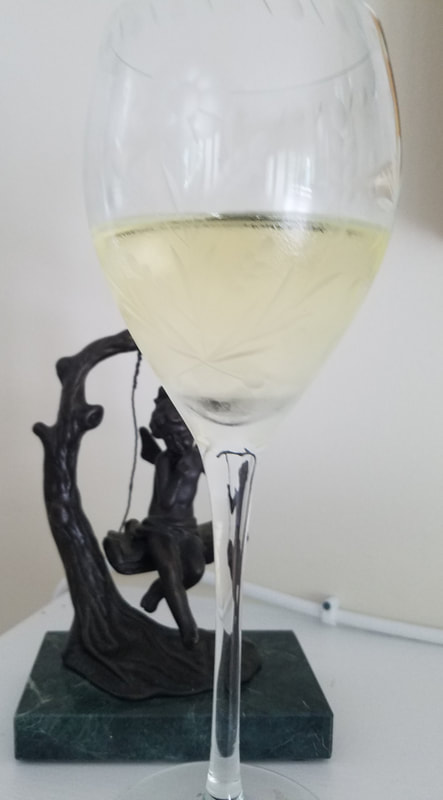 I need to stock up on more Urban Rieslings! Yummy! Cheers! Penina |
Categories
All
|
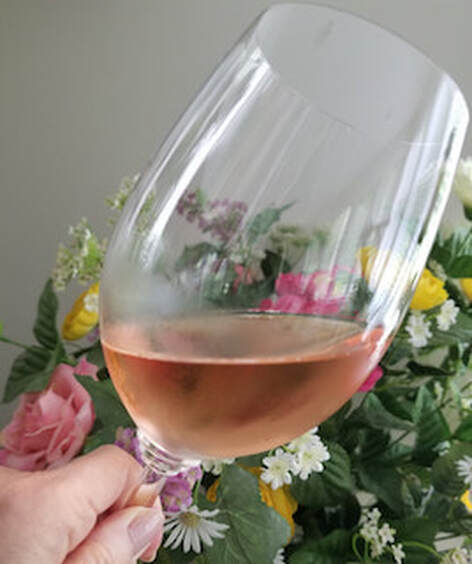
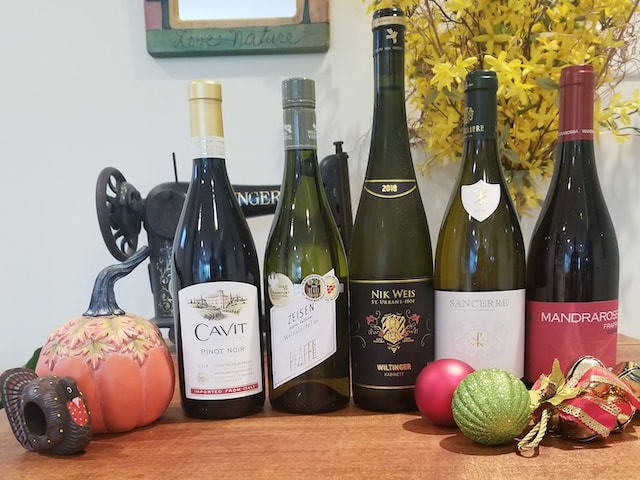
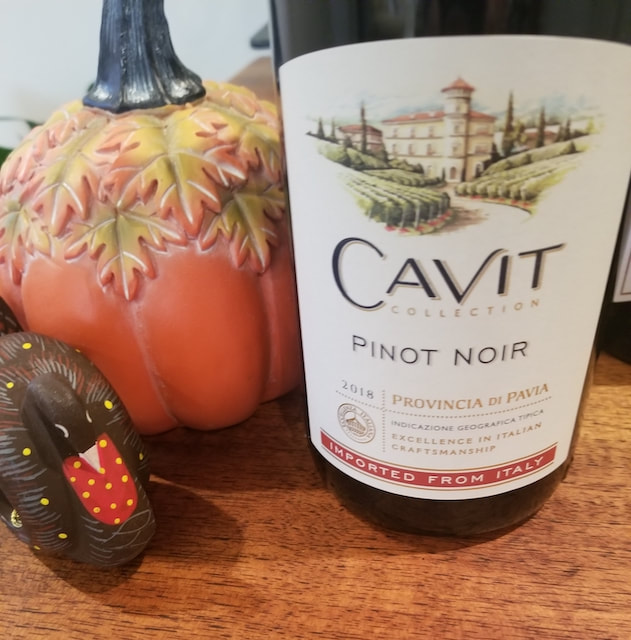
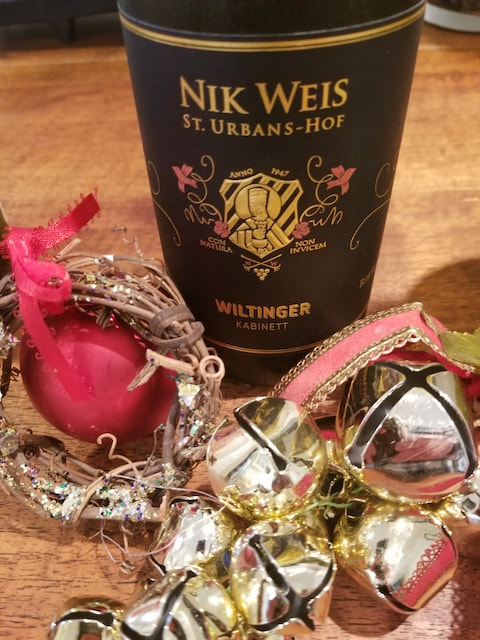
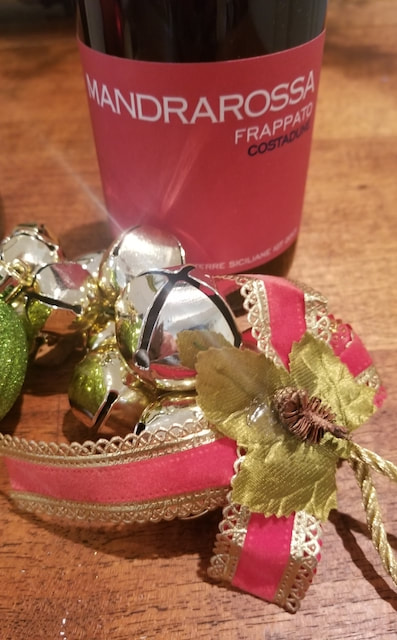
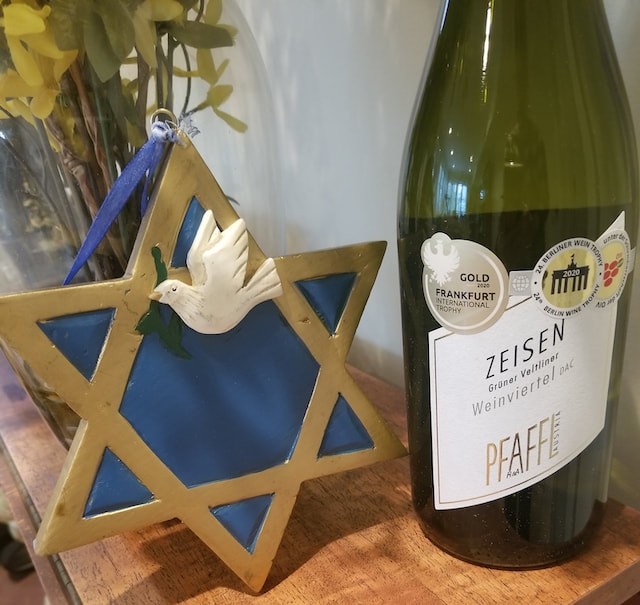
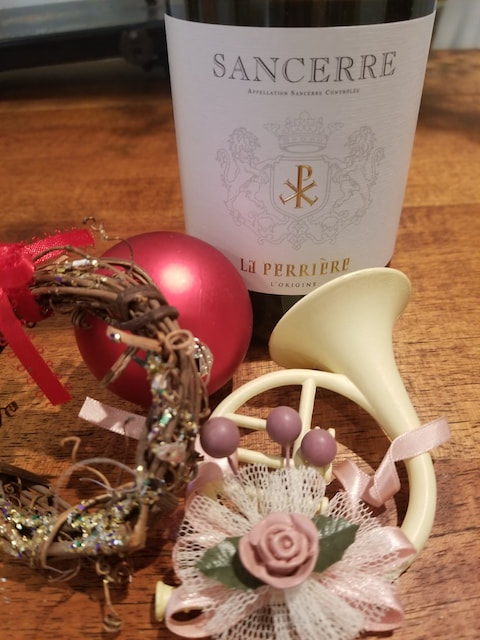
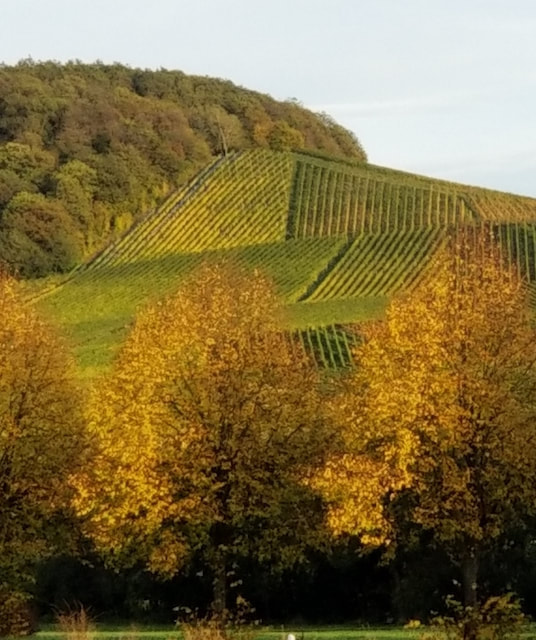
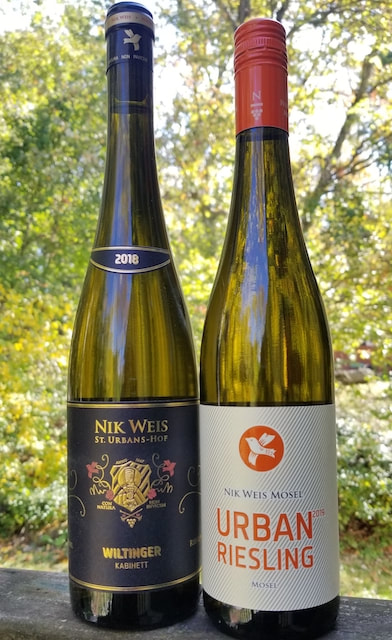
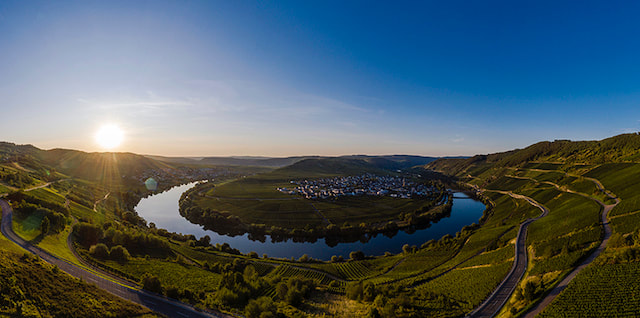
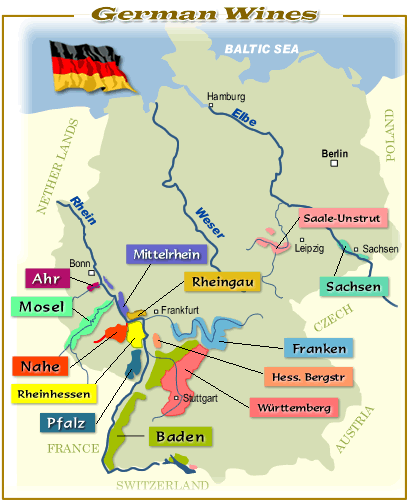
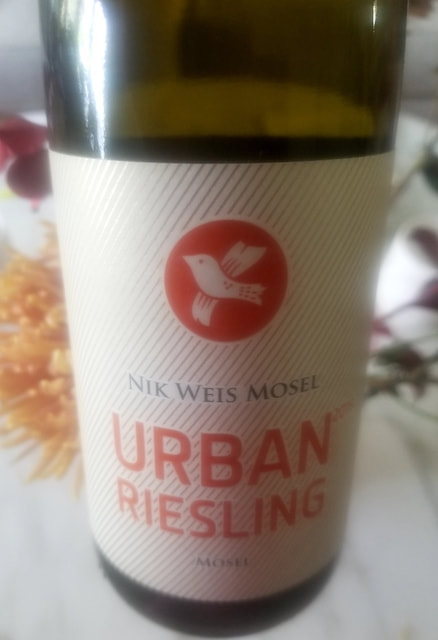
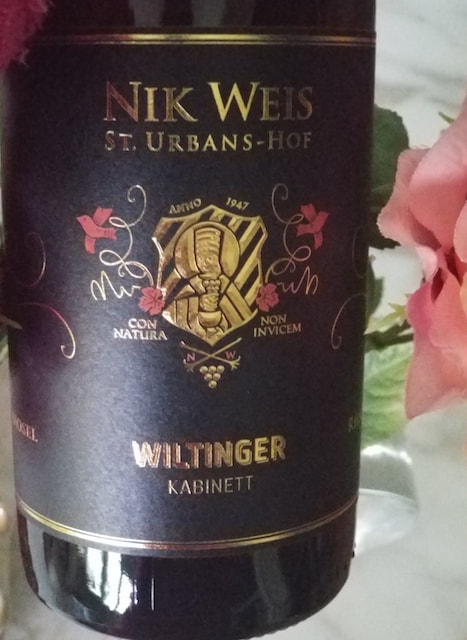
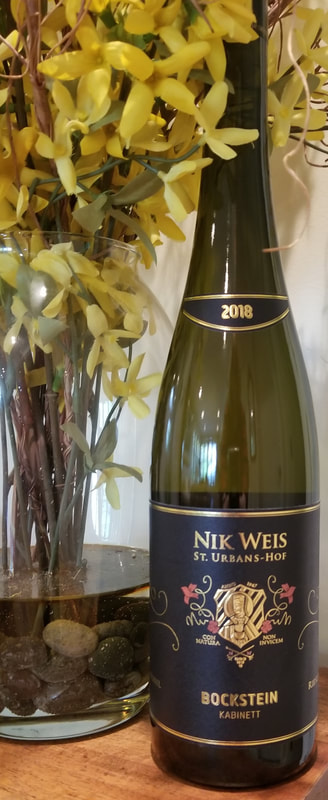
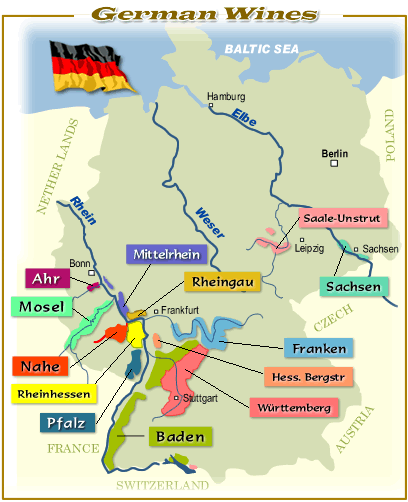
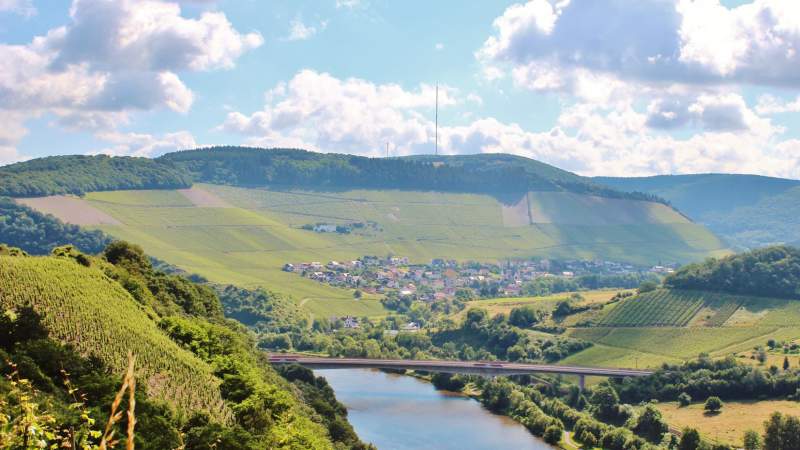
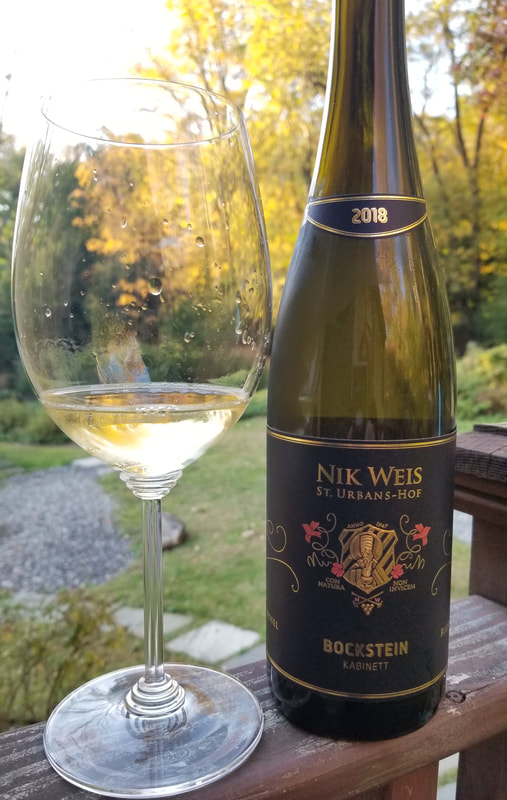
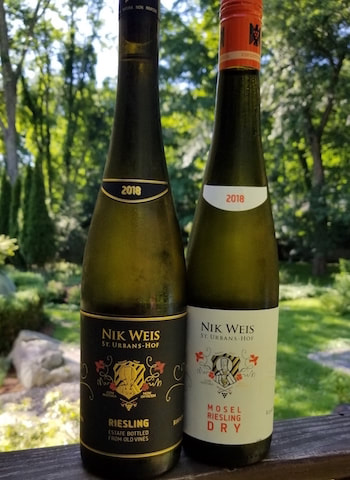
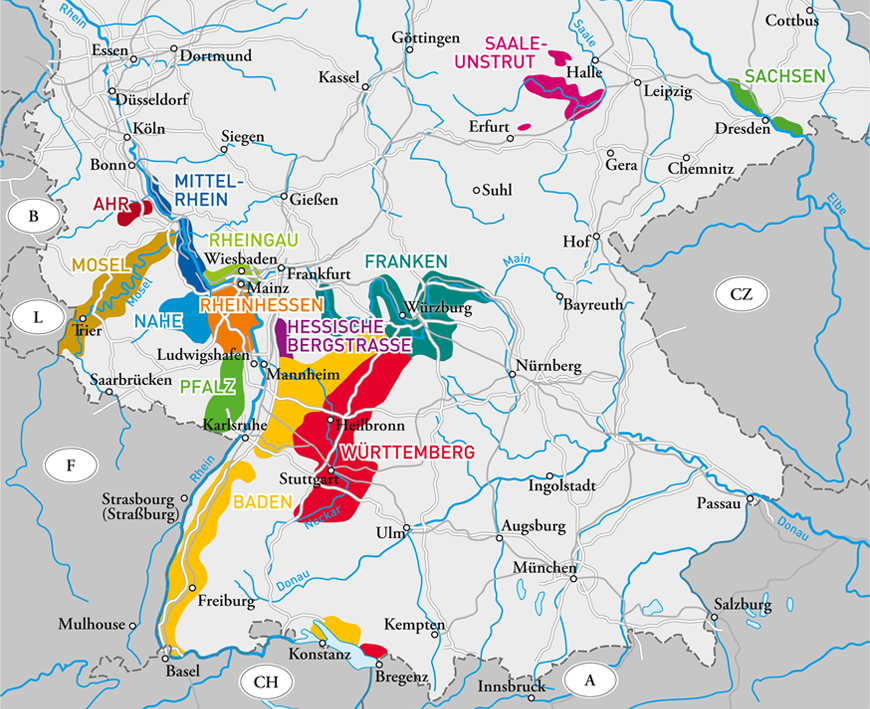
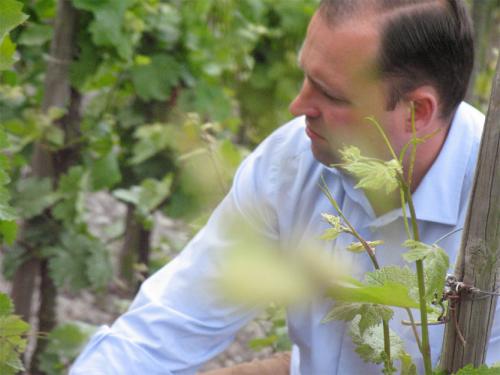
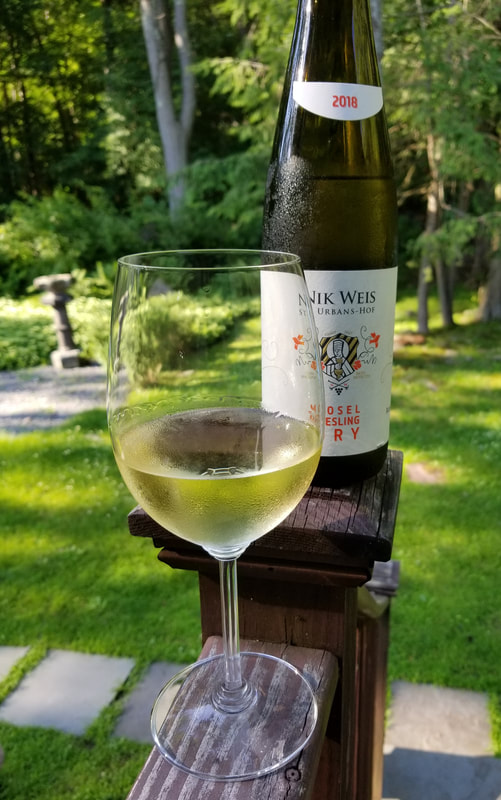
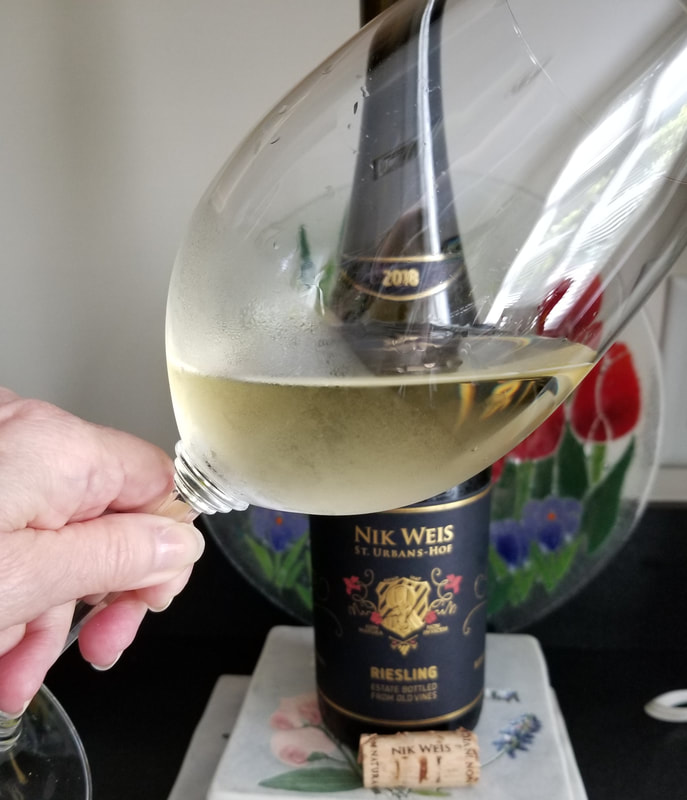
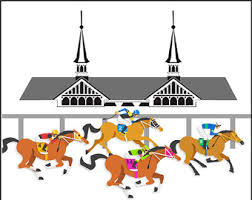
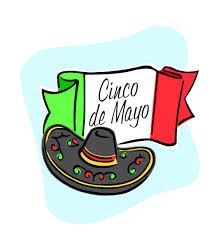
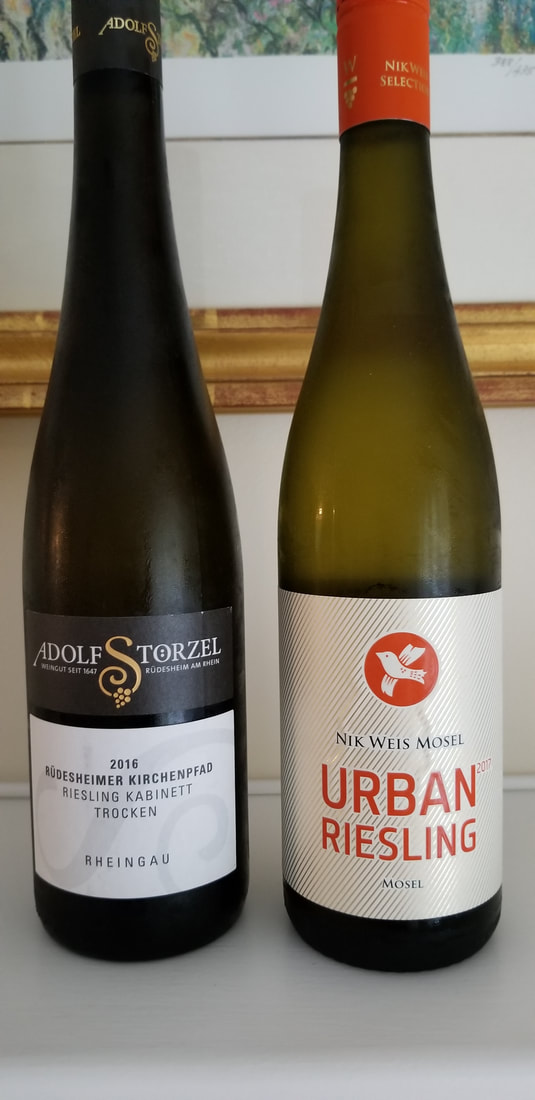
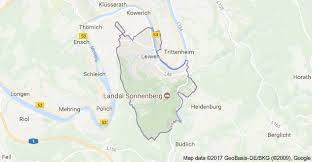
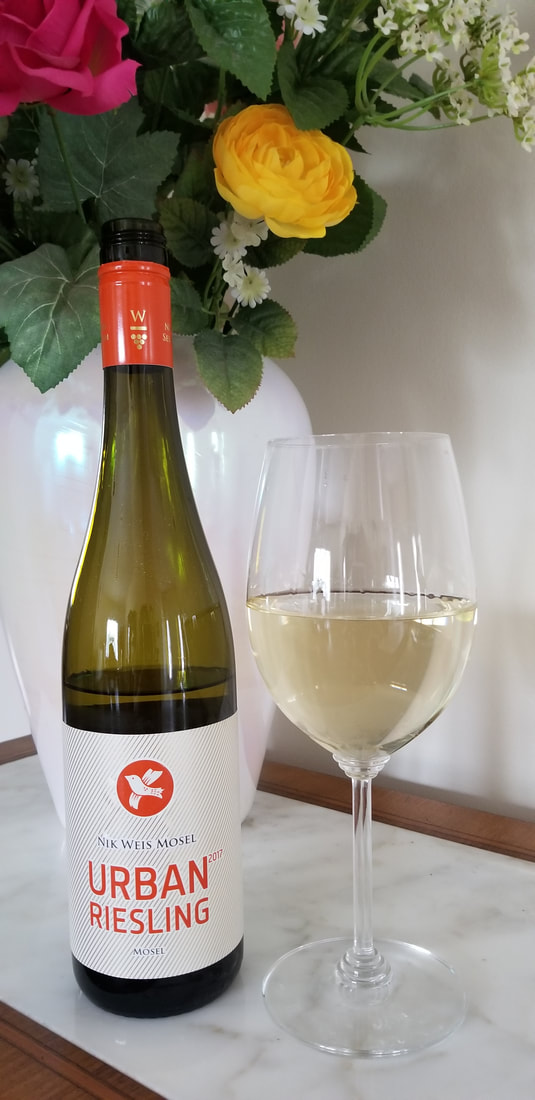
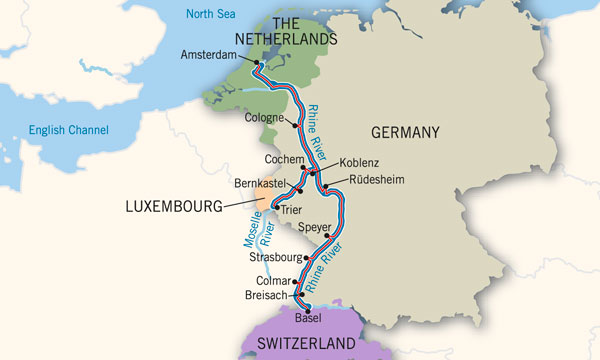
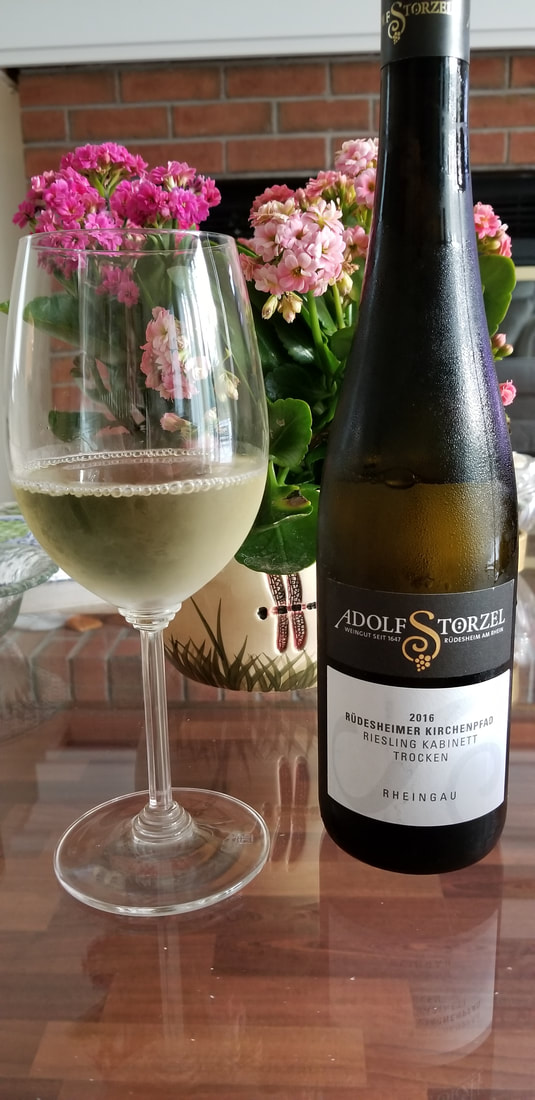

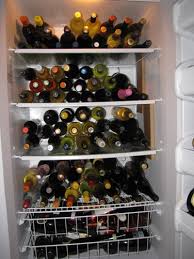
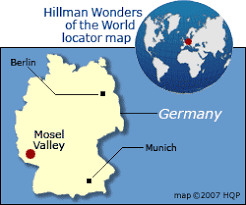
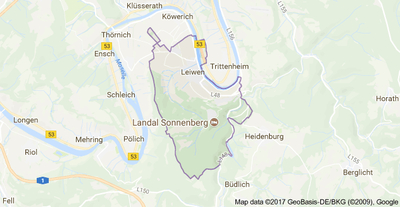
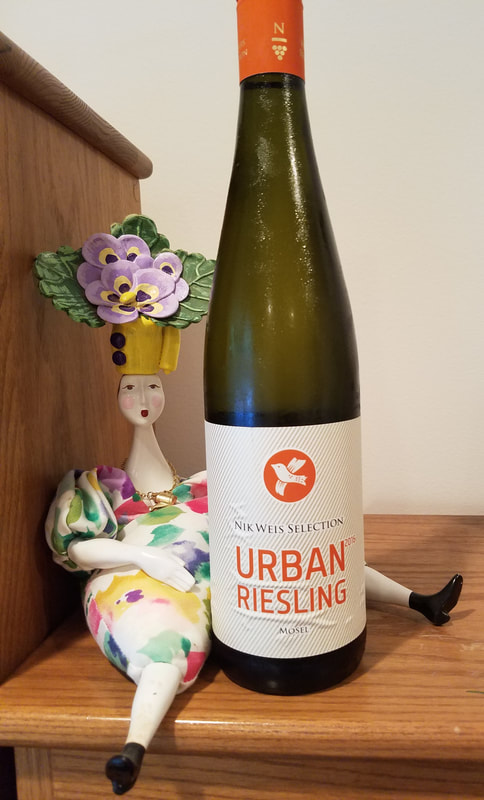
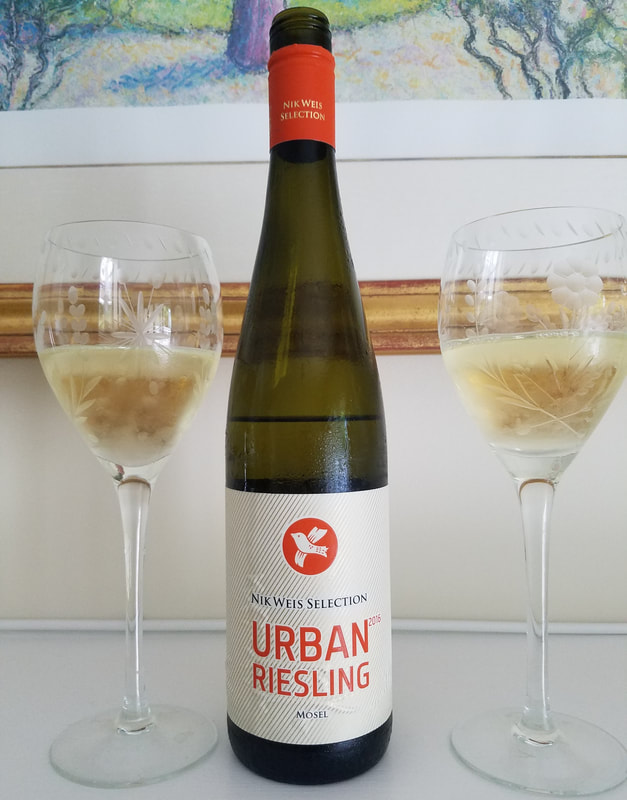
 RSS Feed
RSS Feed